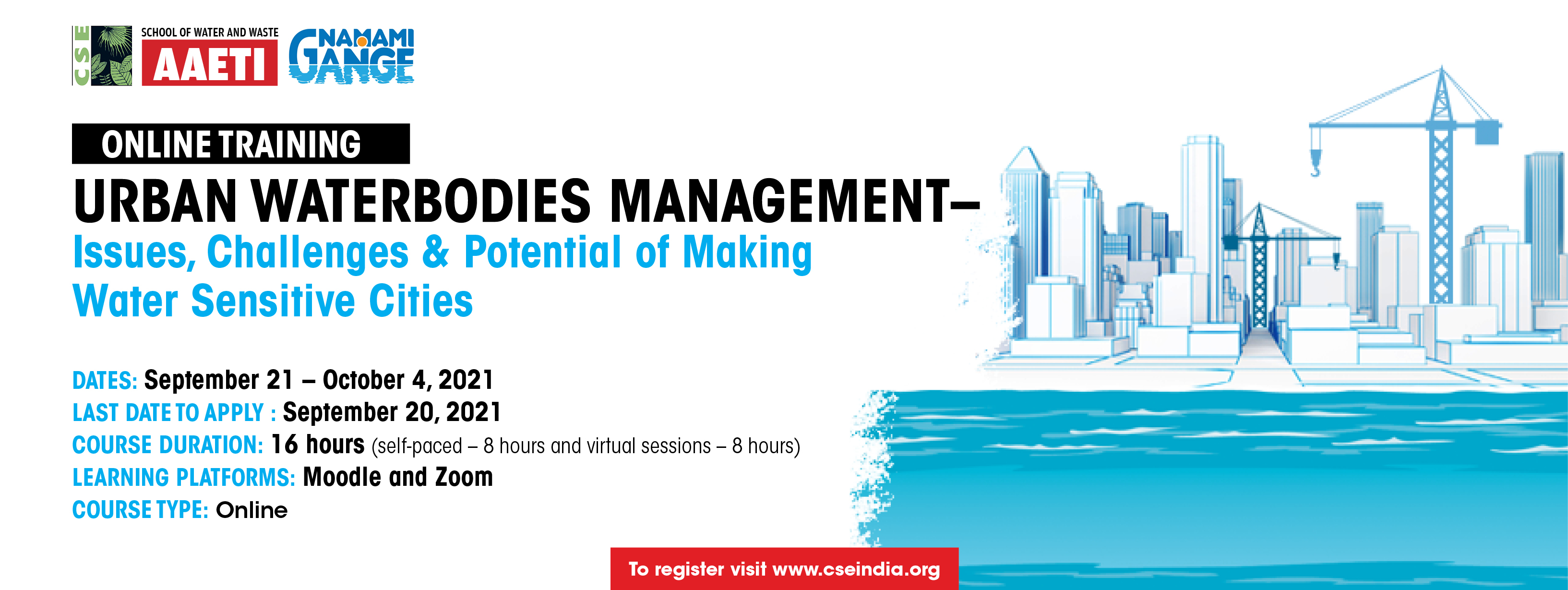
Background
Increasing water demand - supply gap, flooding, depleting groundwater is common phenomenon in Ganga basin cities This has been attributed to rapid urbanisation and loss of waterbodies – ponds, lakes, floodplain and the catchment area. Need is to restore, rejuvenate and protect water bodies (including catchment). This requires sensitisation of agencies and functionaries involved in urban planning and land development on issues, challenges as well as potential of water sensitive urban design and development (WSUDP) – in particular urban waterbodies management to improve liveability and enhance resilience in cities as well as improved river health/flow.
This second online training is a part of series of activities envisaged under 3-year duration CSE programme – ‘Capacity building initiative focusing on ‘Making Ganga basin cities water sensitive’. Under this initiative series of – webinars, workshops trainings (both online and residential), field exposure visits, knowledge conclaves aimed at engaging 1,300+ number state / municipal functionaries and other sector players.
The programme is supported by National Mission Clean Ganga (NMCG) and is part of the series of its ongoing efforts aimed to ensuring convergence of Namami Gange Mission with national flagship urban missions (AMRUT, Smart Cities, Swachh Bharat Mission, HRIDAY, NULM) and other missions (Atal Bhujal Yojana, Jal Jeewan Mission, Jal Shakti Mission) at state /city level across Ganga basin states.
Aim
Capacity building of State/Municipal functionaries and other sector players on issues, challenges and potential of urban water bodies management and mainstreaming water sensitive urban design and planning.
Training Highlights
- Overview of existing issues and challenges in the waterbodies (and its catchment) management in urban areas.
- WSUDP - approach and its potential in urban water bodies management.
- Baseline survey and data collection – Step by step preparing for urban waterbodies management
- Understand enabling institutional frameworks and regulations applicable for mainstreaming WSUDP and urban water bodies management
- Best Management Practices (BMPs) and case studies of successfully implemented projects and socio economic effectiveness.
- Course Director: Suresh Kumar Rohilla
- Course Coordinator: Amrita Anand
- Course Coordinator: Dhruv Pasricha